
-----
Hardcoat anodizing: accuracy of surface area needed?
Q. I am currently working at an aerospace fuel systems manufacturer and stumbled upon a topic that no one at our company can answer with 100% confidence. We run current density using a standard rectifier and calculate surface area using 3D Solid Models. In the past we did not use current density therefore there are only a couple hundred parts with 3D Solid Models out of the thousands of parts that go through our anodize process. Does anyone know how accurate the surface area measurements need to be. Using the Solid Model allows for surface area calculations to the 4th decimal point (.000X). The reason I ask is because many wonder if it is wise to devote so much time to engineering these Solid Models for each and every part. Also we are not sure how much surface area tolerance we have before the standard calculation for time to anodize is no longer valid. Thank you so much!
Dori KimMetallurgical Engineer - Rockford
January 10, 2008
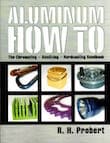
Aluminum How-To
"Chromating - Anodizing - Hardcoating"
by Robert Probert
Also available in Spanish
You'll love this book. Finishing.com has sold almost a thousand copies without a single return request :-)
|
|
A. You do not need 4th decimal place accuracy for surface area. You want 24 amps per square foot for hard coat, but ± 10% or even 20% will work. How tight are your other parameters: temp, concentration, dissolved aluminum. ± 10% on any of those will also work.  Robert H Probert Robert H Probert Technical Services Garner, North Carolina 
RECOMMENDED ANODIZING & CHROMATING BOOKS
for Shops, Specifiers & Engineers 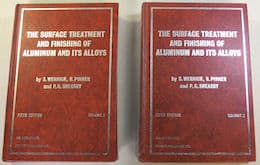 avail from eBay, AbeBooks, or Amazon 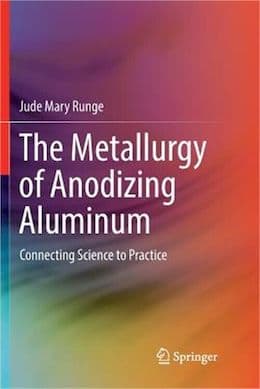 avail from eBay, AbeBooks, or Amazon 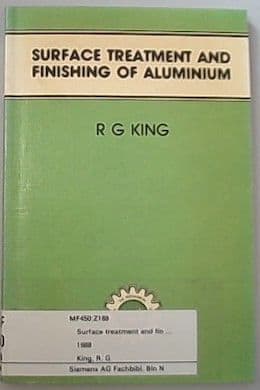
avail from eBay, AbeBooks, or Amazon 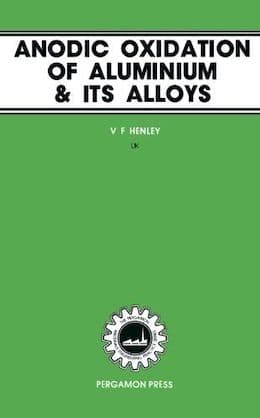
avail from eBay, AbeBooks, or Amazon 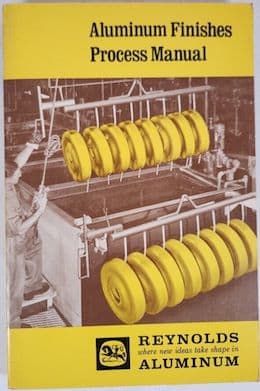
avail from eBay or Amazon (as an Amazon Associate & eBay Partner, we earn from qualifying purchases) A. Do the math, & if you are not using an amp-hour or amp-minute counter, consider acquiring one. - Colorado Springs, Colorado 100% confidence does not mean that surface area needs to be 100% accurate practically. - Singapore |
Q, A, or Comment on THIS thread -or- Start a NEW Thread